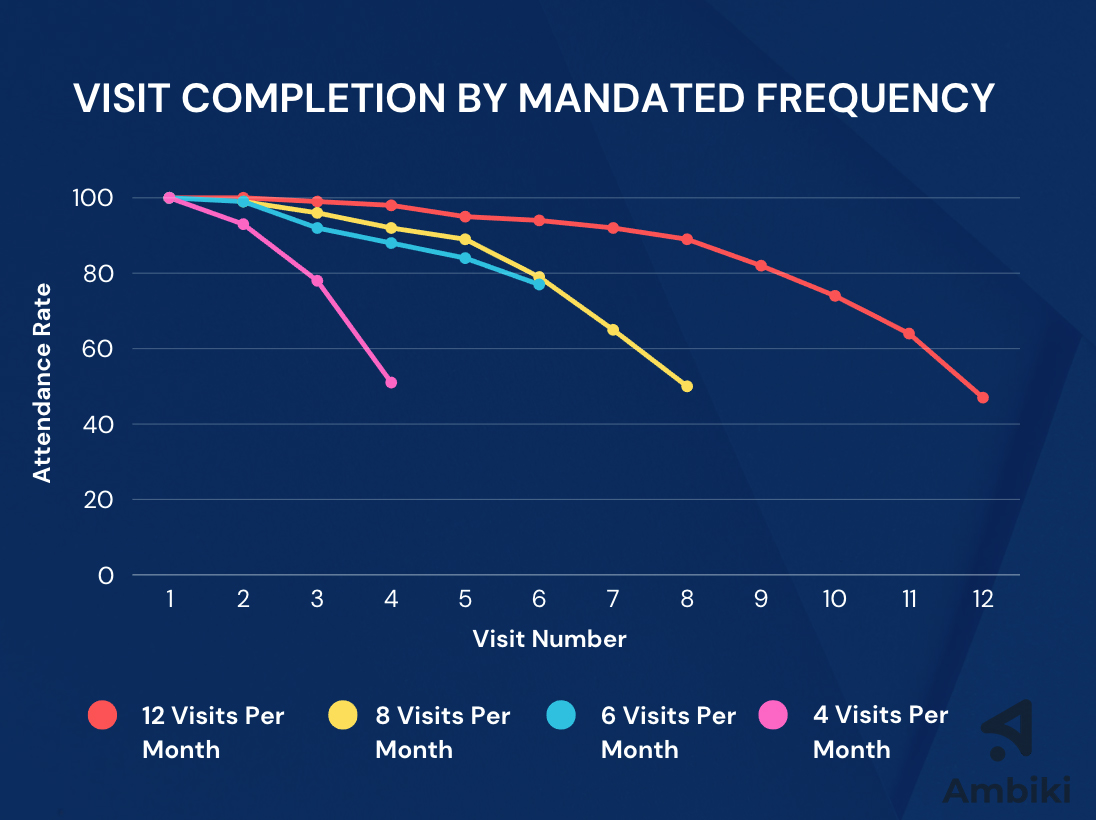The scheduling trap

Your speech therapy private practice has a scheduling problem—you just don't know it.
If you're working with therapy clients who have session mandates—whether from IEPs, 504 plans, or other service agreements—you know how crucial it is to meet those required frequencies. But here's the thing: data shows most practices are nowhere close to meeting these mandates.
A big component of this issue comes down to scheduling.
Many therapists schedule sessions as recurring appointments evenly distributed across the month, adopting a "set it and forget it" approach. That means even one absence (and you know that absence is coming) can derail your compliance. For example, 98% of children scheduled for 12 visits per month complete at least 4 visits in that month. In contrast, only 51% of children scheduled for 4 visits per month complete all 4 visits.
Why the drastic difference?
Think about it. Absences happen. A child scheduled for 12 visits per month likely has their 4th visit in the first or second week. However, a child scheduled for only 4 visits per month typically has their 4th visit in the last week. If they are absent, there's little to no time left to make it up.
That's where front-loading comes in.
Instead of spreading your required visits evenly across the entire month, front-load them. For example, if a client has a frequency of 4 sessions a month, schedule those 4 visits within the first two weeks. This gives you the remaining weeks as a buffer for makeups, cancellations, or unexpected absences. You're being proactive, not reactive.
It's a simple shift in scheduling strategy, but the impact on meeting visit mandates, reducing unrealized sessions, and improving overall efficiency can be significant.
With better data and an improved scheduling strategy, one practice reduced unrealized visits from 43.3% to 8.7%.